About the Host
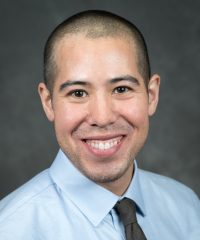
Dr. Nathaniel Chin is the creator and host of Dementia Matters. He is a geriatrician, memory clinic doctor, and medical director for the Wisconsin Alzheimer's Disease Research Center. His father's diagnosis with early onset Alzheimer’s disease inspired him to pursue a career as a geriatrician and scientist focused on dementia prevention, especially in regard to Alzheimer's disease.
Dementia Matters is a podcast about Alzheimer’s disease and other causes of dementia. Creator and host Dr. Nathaniel Chin interviews leading scientists and caregiving experts to bring listeners the latest in Alzheimer's disease news, research and caregiver resources.
Three Ways to Listen
You can listen to episodes through our website or subscribe to Dementia Matters through ApplePodcasts, Spotify, Podbean or wherever you get your podcasts. You can hear Dementia Matters on Fridays at 4 p.m. (CT) and again at 10 p.m. (CT) during the "Science Friday" segment on WMUU Radio, 102.9 FM in Madison, and streaming online.
Contact Us
Email your questions and episode suggestions to dementiamatters@medicine.wisc.edu.
Audio Editors: Eli Gadbury and Alexia Spevacek
Executive Producer: Caoilfhinn Rauwerdink
Producer: Amy Lambright Murphy
Make an Impact
Like what you’re hearing and learning? Make an impact when you make a tax-deductible gift to the Dementia Matters fund of the UW Initiative to End Alzheimer’s.
Recent Episodes
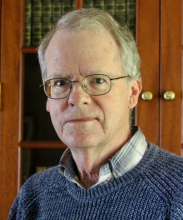
Neurologist and author Daniel Gibbs, PhD, joins the podcast to discuss his recent book, “A Tattoo on My Brain,” which details his journey from treating Alzheimer’s disease clinically for 25 years to being diagnosed with early-stage Alzheimer’s. Dr. Gibbs discusses early signs he experienced and daily life with the disease, as well as thoughts on the recent FDA-approved treatment aducanumab (marketed as Aduhelm).
Guest: Daniel Gibbs, PhD, neurologist
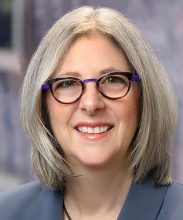
For our 100th episode of Dementia Matters, Nina Silverberg, PhD, director of the Alzheimer's Disease Research Centers (ADRC) Program at the National Institute on Aging (NIA), joins the podcast to offer an overview of the ADRC Program as well as insight into the state of Alzheimer’s Disease research and its future. The NIA funds more than 30 Alzheimer’s Disease Research Centers across the country, including the Wisconsin ADRC.
Guest: Nina Silverberg, PhD, National Institute on Aging
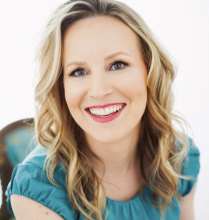
Neuropsychologist and author Michelle Braun, PhD, joins the podcast to talk about lifestyle changes that can support brain health. “We have the ability to make our brain younger than our chronological age,” she says. Braun shares how and details strategies from her new book, “High-Octane Brain: 5 Science-Based Steps to Sharpen Your Memory and Reduce Your Risk of Alzheimer’s.” Hear about common misconceptions around aging, three possible brain health trajectories, and how to maximize your brain health.
Guest: Michelle Braun, PhD, neuropsychologist and national leader in the field of brain health
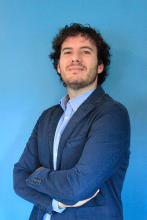
Researchers at the University of California, San Francisco found that among older adults with cognitive impairment, the greater the air pollution in their neighborhood, the higher the likelihood of the presence of amyloid plaques in their brain. Lead researcher Leonardo Iaccarino, PhD, details his work examining air pollution and brain health outcomes and discusses possible ways individuals and society can lower the impact of air pollution on Alzheimer’s disease risk.
Guest: Leonardo Iaccarino, PhD, University of California San Francisco Memory and Aging Center

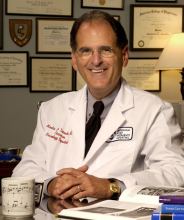
Inappropriate sexual behavior is a common yet rarely discussed symptom in individuals with dementia. Author Elizabeth Marcus writes about her personal experience with her father’s behavioral changes in her new book, “Don’t Say a Word!: A Daughter’s Two Cents.” Elizabeth shares what she learned caring for her father, as well as advice for caregivers responding to the symptoms. Neurologist Dr. Martin Samuels offers background on changes in the brain that can cause inappropriate sexual behavior and other personality shifts that are common in people with dementia.
Guest: Elizabeth Marcus, author; Martin Allen Samuels, MD, Brigham and Women's Hospital

Being Patient is an online news source dedicated to providing research news, caregiver information and resources related to Alzheimer's disease. Being Patient founder Deborah Kan discusses how her personal experiences led her to develop the website, as well as how online resources and communities can help empower individuals affected by memory loss.
Guest: Deborah Kan, journalist, founder of beingpatient.com
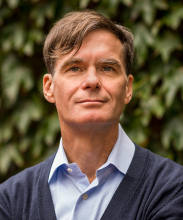
Dr. Jason Karlawish discusses society’s role in addressing care for individuals with memory loss, as well as current stigmas around Alzheimer’s disease, Wealthcare, and his cautious optimism for the future of Alzheimer’s disease research and care. This is the final episode in our four-part series with Dr. Karlawish on his new book, "The Problem of Alzheimer's: How Science, Culture, and Politics Turned a Rare Disease Into a Crisis and What We Can Do About It.”
Guest: Jason Karlawish, MD, co-director, Penn Memory Center

Dr. Jason Karlawish joins the podcast for the third installment in our series on his new book, "The Problem of Alzheimer's: How Science, Culture, and Politics Turned a Rare Disease Into a Crisis and What We Can Do About It". In this episode, Dr. Karlawish discusses the healthcare system’s role in Alzheimer’s disease and what it needs to do better to care for individuals with dementia and help them live well.
Guest: Jason Karlawish, MD, co-director, Penn Memory Center

Dr. Jason Karlawish returns to the podcast to continue our discussion on his new book, The Problem of Alzheimer's: How Science, Culture, and Politics Turned a Rare Disease Into a Crisis and What We Can Do About It. In this episode, Dr. Karlawish discusses pivotal cultural and political moments that influenced Alzheimer’s disease research, as well as the possibilities of drug treatments in the future.
Guest: Jason Karlawish, MD, co-director, Penn Memory Center

Physician and author Dr. Jason Karlawish joins the podcast for the first installment of a four-part series centered around his new book, The Problem of Alzheimer's: How Science, Culture, and Politics Turned a Rare Disease Into a Crisis and What We Can Do About It. In the book, Karlawish blends history and science to detail the most important breakthroughs in diagnosing and treating Alzheimer’s disease. He also offers an argument for how we can live with dementia and proposes reforms we can make as a society that would give caregivers and patients better quality of life. In this episode, Dr. Chin and Dr. Karlawish discuss Alzheimer’s disease in a historical context and the disease's changing meaning.
Guest: Jason Karlawish, MD, co-director, Penn Memory Center
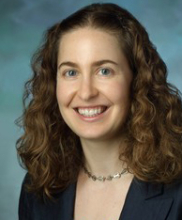
In a recent study, health economist Lauren Nicholas, PhD, found older adults who go on to be diagnosed with dementia are more likely to miss payments on bills as early as six years before a diagnosis. Dr. Nicholas joins the podcast to discuss her research findings, how financial symptoms could be used as early predictors of dementia, signs that may indicate financial trouble due to dementia, and resources for managing your own or a loved one’s finances early.
Guest: Lauren Nicholas, PhD, associate professor, Johns Hopkins Bloomberg School of Public Health
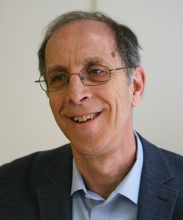
Growing research has shown that music can have a profound impact on individuals with memory loss. Right to Music is an organization dedicated to promoting use of personal music by families and professionals caring for people with dementia and other cognitive challenges. Founder Dan Cohen joins the podcast to discuss how music can affect memory loss and tips for starting music therapy.
Guest: Dan Cohen, founder, Right to Music
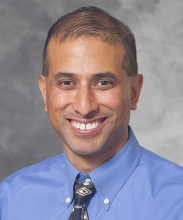
Visiting the emergency department can be a challenging experience for individuals with memory loss and their caregivers. Dr. Manish Shah joins the podcast to discuss the difficulties people with dementia face in the emergency department and offers tips for making the most out of a visit.
Guest: Manish Shah, MD, MPH, professor, BerbeeWalsh Department of Emergency Medicine, University of Wisconsin School of Medicine and Public Health
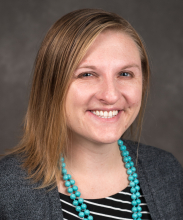
Dr. Lindsay Clark’s new study will evaluate the psychological consequences of disclosing amyloid test results to cognitively unimpaired adults. Dr. Clark joins the podcast to define amyloid accumulation and discuss how her study will examine the process of revealing amyloid results to research participants in Alzheimer’s disease research studies.
Guest: Lindsay Clark, PhD, assistant professor, University of Wisconsin School of Medicine and Public Health
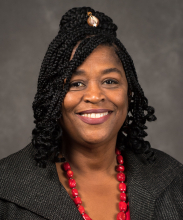
In this special holiday bonus episode, we are joined by poet laureate, writer, and senior outreach specialist, Dr. Fabu Carter, to discuss the impact of poetry on memory loss and a reading of her poem “For Our Beloved Elders with Memory Loss."
Guest: Fabu Carter, PhD, MA, Senior Outreach Specialist, University of Wisconsin of Medicine and Public Health
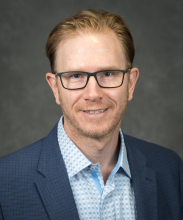
Recent developments have introduced a blood-based test that could predict Alzheimer’s disease, with more of these tests currently in development. Dr. Sterling Johnson joins the podcast to discuss the significance and accuracy of these blood tests, as well as the impact it will have on Alzheimer’s disease research and care.
Guest: Sterling Johnson, PhD, professor of medicine, University of Wisconsin School of Medicine and Public Health
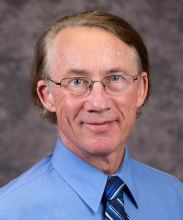
A study from the University of Wisconsin found 40% of geriatric memory patients were deficient in at least one vitamin linked to brain health. Vitamins tested in this study included B1, B6, B12, and D, all of which play an important role in brain health. Dr. Robert Przybelski joins the podcast to discuss his study, the influence of vitamin deficiency on brain health, and the potential consequences of vitamin deficiency when treating a patient for a memory condition.
Guest: Robert Przybelski, MD, associate professor, University of Wisconsin School of Medicine and Public Health
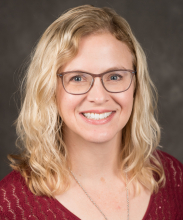
For individuals concerned with memory loss, the first few steps for screening and diagnosis can be the most intimidating. Dr. Cynthia Carlsson discusses recent progress in Alzheimer’s disease research, health disparities some groups face with the disease, and advice for individuals and caregivers who have concerns about memory loss.
Guest: Cynthia Carlsson, MD, MS, professor, University of Wisconsin School of Medicine and Public Health, and director, Wisconsin Alzheimer’s Institute
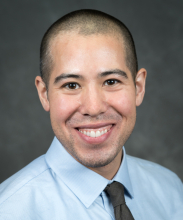
On October 27th, the NBC drama series This Is Us will return for a fifth season. An integral storyline in the show is the diagnosis of one of the main characters, Rebecca Pearson, with Mild Cognitive impairment (MCI). In this bonus episode, our host Dr. Chin helps define MCI and its potential causes and misconceptions.
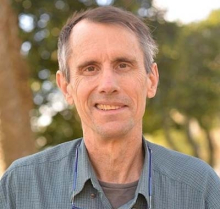
As intermittent fasting has risen in popularity over the last decade, researchers have been exploring its long-term effects on physical health. Dr. Mark Mattson joins to discuss his research on metabolic switching, caloric restrictions, and the cognitive benefits from intermittent fasting.
Guest: Mark P. Mattson, PhD, Johns Hopkins University School of Medicine, Department of Neurology
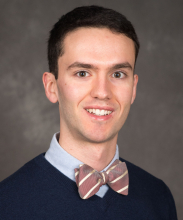
Aerobic exercise is often a recommendation for maintaining cognitive well-being, however its true connections to brain health are still being investigated to learn its effects on Alzheimer’s disease. Wisconsin ADRC exercise physiologist and researcher Max Gaitán joins the podcast to discuss the recent pilot study “Protocol of Aerobic Exercise and Cognitive Health (REACH)” and the study’s future research into the impact of aerobic exercise on brain health.
Guest: Max Gaitán, MEd, Research Specialist, University of Wisconsin School of Medicine and Public Health Department of Medicine

Human factors engineering is the study and design of interactive systems, tools and technologies to best assist individuals in need. We are joined by Nicole Werner, PhD, an engineer working on a mobile technology to serve the lives of informal caregivers.
Guest: Nicole Werner, PhD, Harvey D. Spangler Assistant Professor in the Department of Industrial and Systems Engineering, College of Engineering, University of Wisconsin-Madison
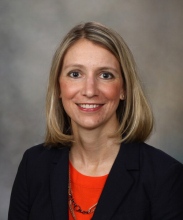
Almost two-thirds of Americans with Alzheimer’s disease are women. In the Alzheimer’s disease research field, there is an interest in understanding the sex-specific differences in the risk and development of this disease. Dr. Michelle Mielke joins to discuss some of these differences as well as how pregnancy and menopause might affect cognition.
Guest: Michelle Mielke, PhD, Mayo Clinic Rochester
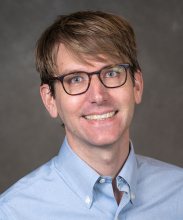
A recent study from researchers at the University of Wisconsin School of Medicine and Public Health found that people who lived in the most disadvantaged neighborhoods were about twice as likely to have Alzheimer’s disease-related brain changes at autopsy than people who lived in the wealthiest neighborhoods. One of the authors joins the podcast to discuss the research findings, the methodology behind the study, and future research directions.
Guest: Ryan Powell, PhD, University of Wisconsin School of Medicine and Public Health Department of Medicine

After serving as the primary caregiver for his wife for 11 years, Dr. Arthur Kleinman shares the unexpected experiences, difficulties and lessons that he faced. His book, The Soul of Care: The Moral Education of a Husband and a Doctor, chronicles the emotional and physical journey as a caregiver for a loved one with Alzheimer’s disease.
Guest: Arthur Kleinman, MD, professor of medical anthropology and cross-cultural psychiatry, Harvard University




